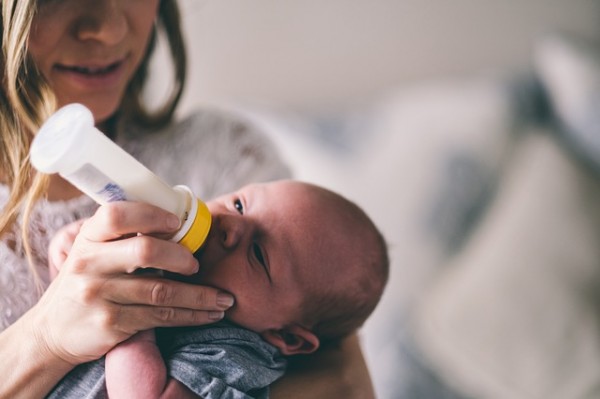The Possibility of Producing Breast Milk in the Lab

Milk companies are recently aiming to keep ‘human mammary cells healthy and fed’ in order for them to discharge milk.
Lab-made milk has resemblances with lab-grown meat. Reports indicate that as cultivated meat firms are trying to grow cells of animals that can be harvested and consumed, milk companies are aiming to keep "human mammary cells healthy and fed" in order for them to discharge milk.
Also, according to reports, in June this year, Biomilq and TurtleTree Labs secured $3.5 million and $3.2 million respectively, "in early investment."
In connection to this, the venture firm of Bill Gates is one of Biomilq's funders. Meanwhile, among the supporters of TurtleTree Labs include the venture company of Saudi Prince Khaled bin Alwaleed bin Talal.
According to TurtleTree labs, its methods could be implemented too, to the production of milk of other mammals. Cow milk, the company said, "Is a second area of work."
ALSO READ: Researchers Find Link Between Breastfeeding and Type 2 Diabetes
Breast Milk, not 100-Percent Replicated
Both firms recognized that they, through their products, cannot duplicate or reproduce "everything in breast milk." They won't, for instance, engage the antibodies found in a mother's milk, which helps the baby combat infection and shield from allergies, or bacteria are known to contribute to "infant gut health."
However, they both believe, they can activate fats, as well as the whole spectrum of what's identified as "human milk oligosaccharides or HMOs," complex sugars that nourish the young immune systems.
None of the said products is available yet on the market, and the project is still currently at its experimental phase.
According to TurtleTree Labs co-founder and CEO Fengru Lin, visually, one can see that milk has been produced. The company official described as "whitish and the nutritional quality" is similar to the mother's milk or breast milk.
DON'T MISS THIS: Why Stress Makes One Overeat or Not Eat at All, and How to Overcome It
A Hope for Breast Cancer Patients
A then breastfeeding mom shared after she was diagnosed with breast cancer several years back, she had to stop providing her 10-month-old baby with breast milk.
Hurriedly, the baby was shifted to an early diet which consisted of pure solid food, which the cancer-stricken mom reasoned, perhaps, was equally nutritious as infant formula. The most effective solution in the absence of milk donated by a breast milk bank, which she said, is reserved from ill and premature babies, as well as those "dispensed by prescription."
The reportedly thrived, the mom shared, but couldn't help but ask, "What if there was another option," or, if breast milk could be made in the lab?
There and then, came US-based Biomilq and TurtleTree Labs established in 2019, based in the United States and Singapore, respectively.
Both firms said as indicated in reports, and they believe they could offer a more nutritious substitute to infant formula by "inducing human mammary cells in a bioreactor to lactate," then collecting the product.
A Product Close to a Mother's Milk
According to Biomilq co-founder and CEO, Michelle Egger, the end-goal "is a product close to breast milk as we can produce."
She also said, so far, tests have validated that the cells are generating lactose, the sugar found in naturally existing in the milk of most mammals, as well as human casein.
This CEO-co-founder shared, she's expecting more testing to unveil other components. And if this technology is proven, it would be said to "leapfrog" the best initiatives to enhance cow-based infant formula-adding roughly up to two "key HMOs which bioengineering microbes made."
Meanwhile, the vision of TurtleTree Labs is to license its technology to manufacturers of infant formula. Biomilq, for its part, has been considering if "it could extract mammary cells" from women prior to their baby's birth, and then "produce milk from those mammary cells" for the creation of personalized milk, by means of individualization, would also be lost: maternal diet, for instance, affects breast milk.
Both companies say their goal is to offer an affordable product although the cost of cell-culture media, they added, can be expensive.
For Biomilq, Egger shared, the company aims to be on par with the leading infant formula in the market. TurtleTree Labs chief strategist and co-founder Max Rye said, their company was producing one liter for roughly $170 but has managed to reduce the cost to $35 "by synthesizing components of the lactation media in-house. Comparably, the cost of one liter of ready-to-drink infant formula is about $8 in the US.
IN CASE YOU MISSED THIS: 6 Reasons Why You're Gaining Weight Unintentionally
Check out more news and information on Breastfeeding on MD News Daily.
Sep 14, 2020 08:00 AM EDT





